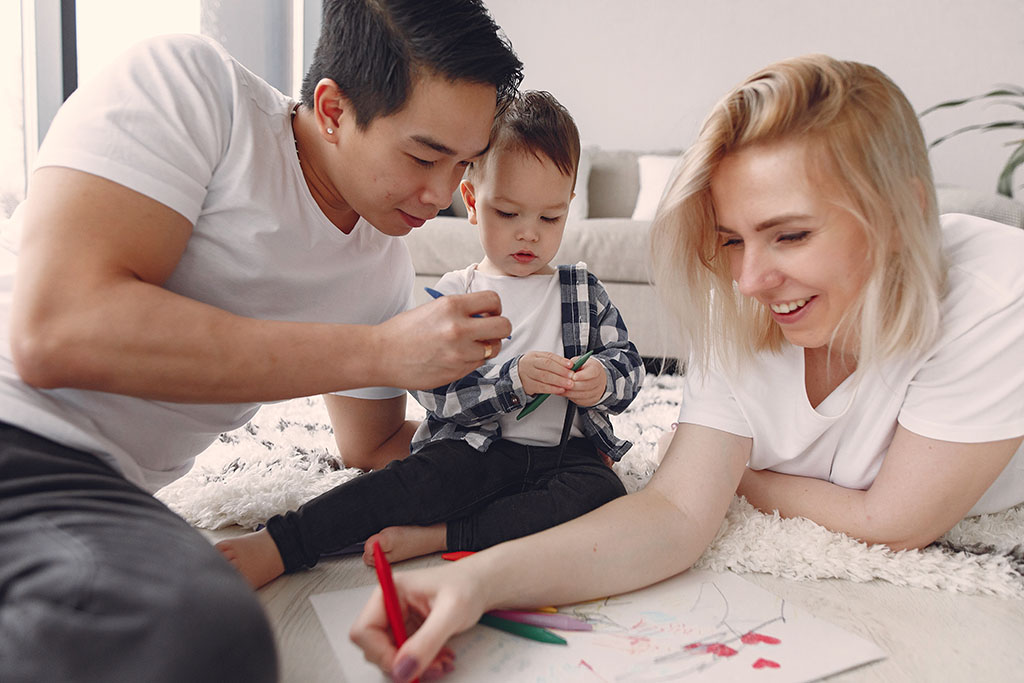Learning to talk: 1 to 2 years
Young children love it when you chat, play and read with them, even if you think they’re too young to understand.
You can turn almost anything into a game. And every little thing you do together will help set them up nicely for the day they start school.
Chat, play, read!
Here are some tips and activities to help your child develop their speech skills:
- try playing with things your child is interested in, and be at their level physically while you’re playing together
- notice what your child is looking or pointing at and talk about it, try to do this before their attention moves on to something else – that might be within a couple of seconds for babies and toddlers
- use picture books to introduce your child to new things – point to the pictures and say what you see
- take turns to make noises or speak with your child, as you can respond to their babbling by copying back the sounds you hear and then waiting for them to take another turn
- make reading, singing and playing fun by using lots of actions and different voices
- use the same song or book – young children learn a lot when they are familiar with particular songs and books
- talk to your child in short, simple sentences, as it helps them understand what you are saying and makes it easier for them to have a go at copying when they’re ready
Ideas to help your toddler learn
Here are some ideas to help your child learn by chatting, playing and reading with them.
Learning activities
Your local council may offer activities to help your child improve their communication, language and literacy skills.
Learning more than 1 language
It’s important to talk to your child in the language or languages you use.
A child learning more than 1 language should babble and say their first words in the same way as a child learning one language.
It is important not to confuse this slight delay with language difficulties – most children quickly catch up.
For more help on languages, have a look at the parent’s questions on the National Literacy Trust website.
Help and advice
Your child may not have any routine developmental reviews during the age of 1 to 2. If you feel your child needs a little extra support, your health visitor can help. They may put you in touch with a speech and language therapy team, or give you details of local activities.
If your child is going to nursery or another early years setting, staff will be able to help keep track of your child’s development. Some children are eligible for free nursery places at 2 years old. Ask your health visitor for more information.
Ask your health visitor for more support whenever you need it, they will be able to provide tips and advice.
Remember, children learn to talk at different ages. If you are worried, speak to your health visitor or nursery key worker, or contact your local speech and language therapy service for advice.
For more ideas on how you can help your child, visit:



